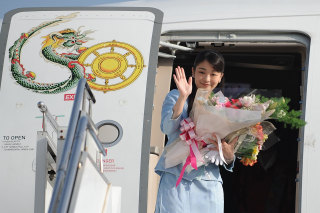Japan’s Royal Household Faces Major Challenges in Line of Succession
by Joy Y. Wang and Arata Yamamoto
Jun 10 2017, 10:33 am ET TOKYO — It’s a slice of history that carries a sheen of glamour and a dusting of a fairy tale: The world’s oldest continuous monarchy, dating back to 660 B.C., boasts a royal seat known as the Chrysanthemum Throne and a princess set to marry a commoner.
But the story of Japan’s monarchy has a problem that may seem from an era long past. The country’s male-only line of succession, combined with a dwindling royal household and an aging emperor set to abdicate, means that the royal family faces an uncertain future.
The Japanese parliament voted Friday to allow Emperor Akihito, 83, to abdicate in the next three years. The popular royal figurehead signaled last year that age was a contributing factor in his desire to step down. His would be the first abdication since Emperor Kokaku did so in 1817, two centuries ago.
But while Japanese lawmakers passed the milestone bill allowing for a one-time-only abdication, they also avoided the larger issue of opening up the line of succession to female members of the royal household — which currently only has 19 members, just five of whom are male.
Instead, the parliament noted in an addendum that it would seriously consider whether to allow women in the royal family to retain their official duties after marrying commoners.

Image: Japan's Princess Mako waves prior to her departure
The resolution speaks directly to the issue of Princess Mako, who indicated that this summer she would officially announce her engagement to Kei Komuro, who she met as a university student. Under current rules governing the Imperial Household, the 25-year-old granddaughter of the current emperor would relinquish her royal status, as well as her official duties, by marrying a commoner.
The resolution to reconsider the issue allowed Prime Minister Shinzo Abe to appeal to public sentiment, which generally supports opening the line of succession to women, while also not alienating his conservative base, which does not.
"Having a stable imperial succession is a very important issue," Abe said on Friday. "The government will respect the addendum and continue with the examination of this issue."
In May, a survey by the Kyodo news agency reported that 59 percent of Japanese people "supported realizing both a female emperor and an emperor of female lineage" while 86 percent support allowing a woman to assume the throne.
<..snip..>
http://www.nbcnews.com/news/world/japan-s-royal-household-faces-major-challenges-line-succession-n770406